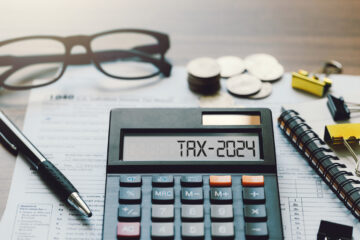By Yinghan Du
Professor Ana Regina Andrade is a Principal Senior Lecturer in Economics in the Department of Economics at Vanderbilt University. Her academic interest is developmental economics and the Latin American economy.
Professor Andrade, and a team of graduate students, visited Argentina for an economic field trip in the spring of 2023. In the first part of this interview, she described the general economic history of Argentina and the status of this economy with an emphasis on the agricultural sector.
Yinghan To begin with, could you please provide some general background information about the economic status of Latin America and opportunity in general?
Professor Andrade Well, Latin America would take much longer, but Argentina is facing a very daring time, but not talking about the crisis right now. Argentina is a country that has one-third of the territory compared to the United States. But only has 45 million people. So it has extensive, massive resources. The largest concentration of people lives in Buenos Aires, the capital. Most of Buenos Aires, the metropolitan areas surrounded, are where the majority of people in Argentina live. And this country is known for its abundance of natural resources. As with any other Latin American country, they also invested in industrialization. In the 60s and 70s, well, they started, after World War Two. And you see there is a vibrant industry and in Buenos Aires, quite impressive. I’ve been to many countries in Latin America as you know, and Argentina is… I cannot compare it with any one of the ones that I have visited. As soon as you arrive in Buenos Aires, you travel into the city. The city is quite large and is beautifully done. The architecture is impressive, like if you have been to Italy or in Spain. That beautiful architecture is very well planned. Urbanization is very well planned. So as you perhaps remember in my class, Argentina is a great case study, because at the end of the 1800s, and beginning of the 1900s, it was considered one of the wealthiest countries in the world. And you can see that, you can still perceive it. In the capital, the gorgeous theaters, the estate buildings, the beautiful parks, it is… they’re very proud of it. I would say they have all these gorgeous architecture from that time period at the beginning of the 1900s, and they are maintaining it beautifully. The streets and boulevards are amazing. So it is very orderly and very clean. So that is why you feel more like you are in a developed country when you get in there. I’ve been to Rio, Santiago, Chile, and Costa Rica. And countries are doing pretty well, too.
Yinghan So even Chile doesn’t compare with Argentina?
Professor Andrade No. It’s a gorgeous country, too. And you have the impressive buildings and [so on]. But in Argentina, the wealth that they had at the beginning is shown. But as you know, Argentina, completely contrary to other countries like Chile or Uruguay, or even Brazil, that these countries are invested in industrialization, and they moved on. Now they are more developed. Argentina suffered from a regression in development, especially economic development. Because we see the differences between economic development and development. That’s why you can quite see the regression in terms of economic development is seen in Argentina. But then development per se in terms of how much the state invests in health issues, health care, in how much they invest in education is pretty impressive. So when you see HDI, the human development index, the index is as comparable to the United States.
Yinghan Yes, indeed. So in a word, Argentina is a country that has a rich legacy from the last century but has been having much trouble in economics since the Latin American debt crisis.
Professor Andrade But contrary to other countries… the majority, in Washington Consensus after the debt crisis and everything, most of the Latin American countries move into a more neoliberal, market-based approach. And the thing is in Argentina, as I said, they are very wealthy because if they throw a seed, any seed, it’s going to grow. They have such fertile soil that they are experts. I was completely impressed by the expertise that they have in cash crops. The agricultural sector is very powerful, very productive, and extremely high-tech. We’re not talking about small farmers on a small scale. They said that the average farm is 250 hectares, it’s pretty large. And the expertise that they have, technological advances, and everything regarding of agriculture. So it’s not that they have a mass amount of people working in the agricultural sector because this its high-tech. They have drones. They have the latest machines. They have satellite images, and they have the best seeds in all the crops. And the crops are very high-demand crops, and they do very well. Too well. I’m saying too well because it is so profitable. So what the state does is punish the farmers.
Yinghan Oh, yes. This brings us to the next question. You mentioned the state is recently raising tax on the export of these corps. And this is one of the main reasons why you visited Argentina this time, correct?
Professor Andrade That’s correct. Because I wanted to witness and we wanted to talk to both sides. And as I mentioned, I want to understand from the state’s point of view, the reason behind it, and from the farmers’ point of view because it’s not a small tax. So soy, for instance, is one of the most profitable crops they have. They have other important ones as well, but soy is the highest. And the export tax is about 30% – 33%. So the chain goes: the farmers produce and sell all the soy, and the soy gets ready for export. The production of soy is not just the crop itself. It needs to be ready to be put into the containers to go. So there’s a middle production there. But what I’m trying to say is, you see the farmers, out of the total prize in the international market, get reduced to two-thirds of what they had. So imagine how effective and efficient they need to be to make profit profits out of it. It is so impressive because the farmers are in the high caste, high income. So everybody’s making money. They produce soy, and they make high profits, in spite of being punished because one-third of what they sell…
Yinghan Goes to the tax.
Professor Andrade It goes to tax, goes to the government. The government gets to use it in all public spending. So to me, it is quite remarkable how profitable agriculture is in addition to the taxes they are facing in this case. But you can see it from other points of view, the prices, the inflation this economy is suffering is close to 100%. You remember what we saw in our class; we have high inflation, and we have hyperinflation. They are not. But they’re getting closer and closer to hyperinflation. During the time that we were there for these nine days, we experienced what a normal Argentinian faces every day. Prices increase all the time. When we arrived, in this economy… One of the large consequences of inflation is that people get into all these senses of instability and expectations, right? You don’t know exactly what the prices will be for tomorrow. So you need to spend it today that you can. So there is high consumerism. That is one of the consequences of high inflation. You spend more today. And, of course, you don’t save because your savings are losing the worth of your money.
Yinghan So high consumption and low savings.
Professor Andrade Exactly, which is translated to non-investment. Then it goes into this cycle of just living in the moment and not increasing economic growth because companies do not want to invest. If they get into this inertia of just producing for what the demand is today, it becomes a game of who can increase prices faster to go ahead of the game. But in this game everybody loses; there are no winners.
Yinghan And this is the case in Argentina?
Professor Andrade Yeah, they have multiple exchange rates. There is the official exchange rate which is $1 for 200 pesos. But then you go into the black market, and you get… As soon as we arrived, we got 362 per dollar. Six days later when we needed to have more, it was 375. And the official [exchange rate] doesn’t quite change.
Yinghan So they don’t have a free foreign exchange market?
Professor Andrade Well, in a way, it is. There is the black market, right? But the government is still trying to fix it. And then, which is absolutely unbelievable that we are talking about all this, this happened in many countries in the 70s and 80s. But this is the country that still is using the same tools that we know are so damaging for the whole investment environment. I wanted to mention that there are, as I said, different exchange rates. So there is one official, and there is another in the black market. And in between, there are some… For instance, the government made a deal with these soy farmers that if they sell… They wanted to wait for the prices to be the highest because the exchange rate is also at their disadvantage. So anyway, they’re trying to give incentives to the producers to sell, instead of hoarding and holding the inventory. So they now have a soy exchange rate.
Yinghan A soy exchange rate?
Professor Andrade Aha. Because when they export, what the producers get is the official. Imagine that! The official exchange rate. They don’t get the black market. Do you see how the whole exchange in production, exporting, and importing becomes almost impossible?
Yinghan Yeah, definitely. And if no one wants to export because of the exchange rate, that makes the exchange rate even worse, right?
Professor Andrade Yeah. Well, indeed, it’s a disadvantage because what they get is 200 pesos for one $1, instead of having the 375 when I left. So you see the margin is large. The differential is large. So they’re not only punished by the tax, they are punished by the variability of the exchange rate, the unpredictability of the exchange rates.
Yinghan And despite all these adversities, they’re still making profits.
Professor Andrade That’s correct. Isn’t that amazing? Wow. They need to become so efficient. Do you see how hard producers, in this case, farmers, rise to the challenges? I was so impressed that they are fighting export taxes, and they are fighting the viability of the exchange rate. On top of these, the third one is the drought. Climate change is punishing them. To a large extent, they have experienced one of the hardest droughts ever. And this is a country that, as I said, is so blessed because of the abundance of natural resources, so fertile. But the drought is a big concern.



